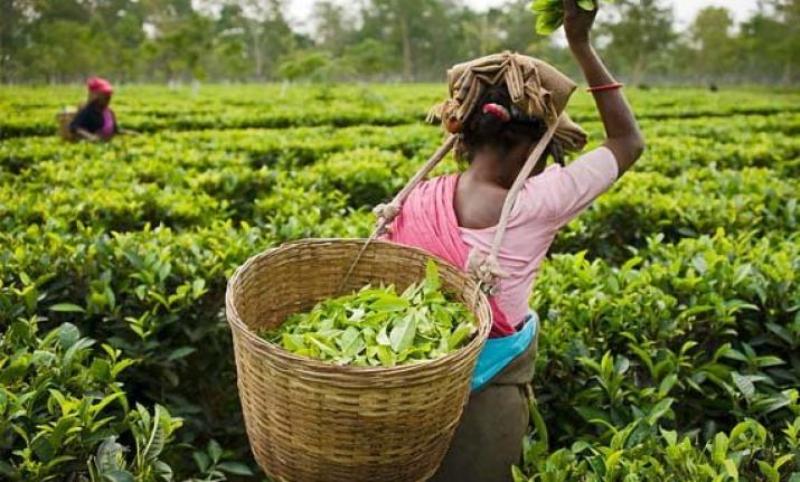The changing weather patterns have made it increasingly challenging to harvest even two kilograms per day of high-quality tea leaves, a fraction of the six-seven kilograms per day till 2015
The implications of climate change ripple through every aspect of their lives. The consequences of diminishing tea yields, for instance, reflects in their salaries
Behind the serenity of Darjeeling’s famed tea gardens with gentle slopes stretching green and pine trees seemingly touching the skies, a crisis unfolds quietly, almost unseen — climate change that is affecting production, the flavour of the tea and the health of hundreds of workers.
With no data yet, the impact of climate change is as intangible perhaps as the mist that rolls in ever so often. But it is being felt every day, say activists and experts working in the area.
At the nub of the issue is the use of pesticides and its hydra impact. With extreme weather events becoming more frequent and unpredictable, tea estate owners are desperate to protect their yields.
However, the intensified use of chemical interventions takes a toll on health of those who work in the gardens, has a bearing on the delicate flavour of the tea leaf and also on yields.
Varsha*, a 34-year-old tea garden worker, doesn’t have a string of degrees, isn’t privy to decision making in the estate but knows only too well why day to day life has become so difficult.
She suffers from breathing difficulties, eczema on her hands and feet, and persistent heaviness in her chest. Despite her many struggles, she perseveres at her job of picking tea leaves.
“In the last few years many tea estate owners have resorted to ramping up the use of pesticides and insecticides to boost tea production, which has been declining due to droughts, erratic rains, and increased pest attacks.” “We are forced to spray these chemicals without any gloves or masks,” she told PTI.
Chemical pesticides are wreaking havoc on her colleague Mamata’s* health too.
The 29-year-old, who works in the same garden, collecting leaves, drying them and spraying herbicides and pesticides on them, has developed asthma in the last few months.
“The doctors say it might be because of the continuous inhalation of chemicals. We need special masks during spraying of pesticides which are expensive and also not easily available. We have raised this issue several times with the managers but have not received any help yet,” she said.
In the sprawling tea belt that covers Siliguri and the Dooars, the stories are plenty.
While some gardens provide protective gear such as gloves and masks, there are many that don’t.
Prolonged exposure to chemicals can even turn fatal in the long term with debilitating diseases, including cancer, causing severe damage to organs, said Dr.Amit Deshpande, founder and director, Activist Healthcare.
PTI reached out via email to the Tea Board of India chairperson on Thursday for a response but received no response till the filing of this report.
The number of workers employed in tea gardens varies in accordance with the size of the garden. Small tea gardens employ about 250 tea workers, medium sized 600 while a large estate can have more than 900 employees.
The issues go beyond the health risks faced by tea estate workers.
Rupa Choudhary, meticulously examining the newly picked tea leaves, laments the decline in production.
“The first flush, which used to bring abundant tea production during March and April, has significantly reduced due to droughts,” Choudhary, who is tasked with weighing and sifting through dried leaves, told PTI.
The changing weather patterns have made it increasingly challenging to harvest even two kilograms per day of high-quality tea leaves, a fraction of the six-seven kilograms per day till 2015.
The implications of climate change ripple through every aspect of their lives. The consequences of diminishing tea yields, for instance, reflects in their salaries.
“Daily, we earn only Rs 235, which is barely enough to make ends meet. The rising costs of vegetables and other essential items make it even more difficult to provide for our families.” Tea estate managers Sandeep Kumar Gupta and Partho Das Roy, who work in the Dooars and Siliguri, echo the sentiments of the workers.
According to Gupta, irrigation costs have soared due to insufficient rainfall, resulting in both decreased quantity and quality.

